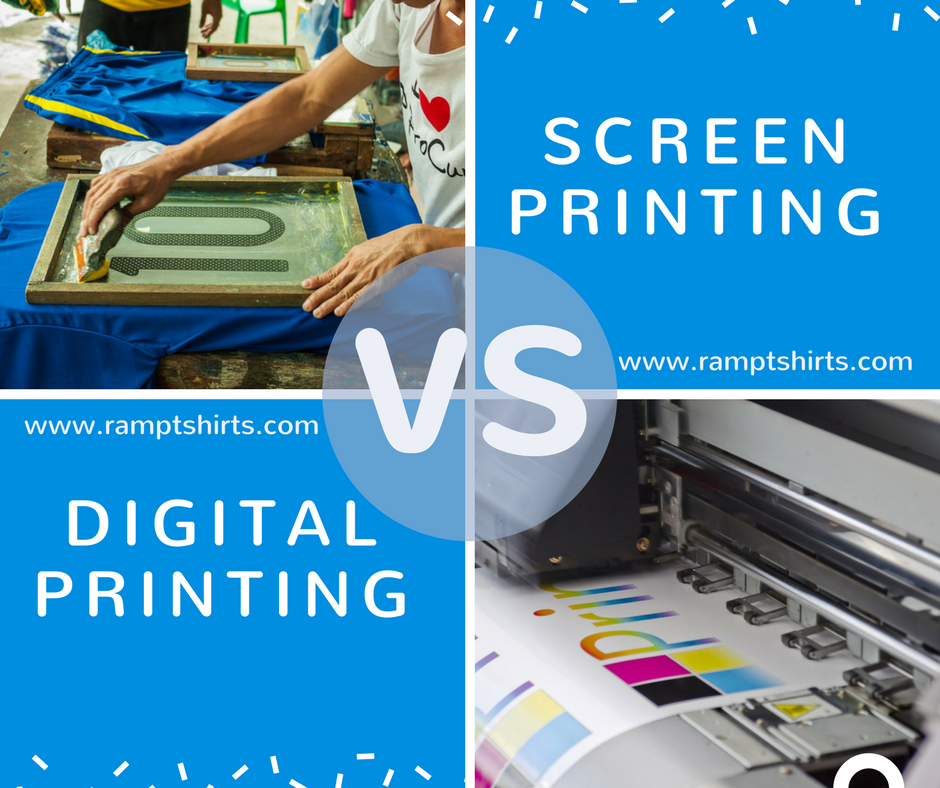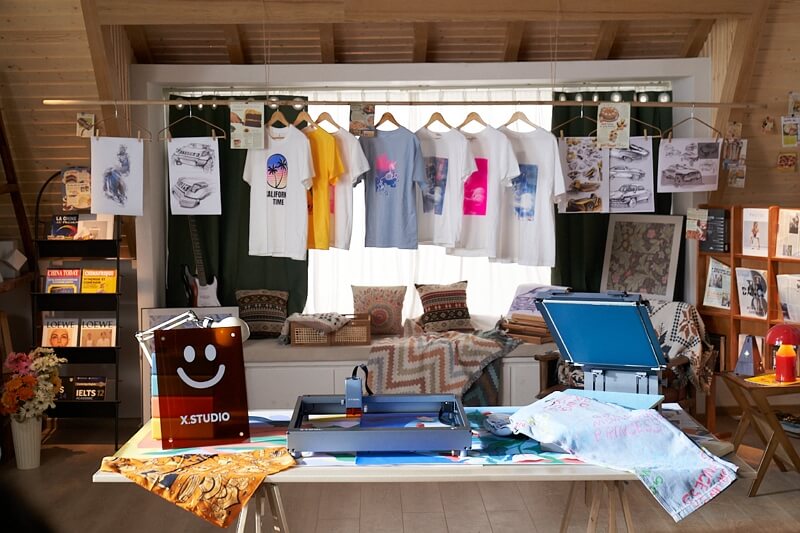Fascination About Tx Tees
Fascination About Tx Tees
Blog Article
Some Of Tx Tees
Table of ContentsTx Tees for DummiesHow Tx Tees can Save You Time, Stress, and Money.Tx Tees Can Be Fun For EveryoneWhat Does Tx Tees Do?Some Ideas on Tx Tees You Need To KnowThe Single Strategy To Use For Tx Tees5 Easy Facts About Tx Tees Shown
Include up other prices, like the number of energies it takes to run the shop and the price of ink and emulsion per design. Take the print listed below.The emulsion needs to just be a few cents considering that you 'd only require to layer one screen for this task. Just how much should you charge per tee shirt to make a profit? Normally, printers try to make up to 45% revenue on a print task. Below's a table to help you figure out that: complete cost per product percent of wanted earnings as a decimal (example:.25 or.45) earnings made per item per job Now let's talk regarding the profitability of DTF.

With DTF, you can publish a handful of tee shirts, or just one. Both screen printing and DTF have their particular niches in the world.
Some Known Factual Statements About Tx Tees
The most effective method to know? Ask around and see what printing shop like yours are doing. custom cap printing. Attempt both out and see which you like far better
When you're choosing what kind of printing approach to use for printing your artwork layouts on your garments, it's essential that you understand the distinctions between these two strategies so you can maximize results while lessening costs. Screen printing is the most typically made use of strategy for publishing designs on textiles.
DTG printing is additionally called area or direct to garment printing since it publishes only what is required rather than making a display as display printers do. https://www.twitch.tv/txtees02/about. Display printing works by display filler squeegee screen printing ink display mesh display, then moving the image to garment using warmth and/or stress
The DTG printer makes use of special dye-sublimation inks that are used right into a pre-designed picture by a digital printing system. The inks enter into the textile, enabling vivid colors and extraordinary detail. It's also known as place or straight to garment printing since it prints only what is required as opposed to making a display as screen printers do.
An Unbiased View of Tx Tees
Initially, it's much quicker - you can print a fullcolor picture in minutes, rather than hours for screen printing. Second, there's no established time or expenses entailed - you can publish any style you like, without having to develop a display initially. Third, there's no waste - because display printers screen print one layout at once, they have to screen each color independently.
The paper is extremely pricey and can just be used once. Once it's printed on, it has to be discarded. - The preliminary acquisition cost is lower than the upfront financial investment of DTG printers- You can print multi-color designs one screen each time rather than needing to print each shade individually like DTG printing.

Excitement About Tx Tees
Instead of making use of screen mesh as display printers do, color sublimation printers utilize laser innovation to transfer your images onto garments or paper. A warmth procedure transfers the dye from its solid-state directly right into the gas stage which consequently integrates it onto textile substrates when they are rapidly warmed to heats under high stress.
Sublimation printing is environmentally friendly. It makes use of much less water than screenprinting, and since it doesn't entail making use of harmful solvents, it's safe for all kinds of clothing. The dye sublimation inks are additionally unsmelling when cured, unlike screen printers that make use of harmful chemicals during the screen printing process that leave behind an undesirable smell.
They likewise conserve cash on expensive tools like direct exposure units since dye sublimation printers don't need a UV exposure system or a flash remedy oven that is usually made use of in display printing (screen printing shop). What is direct to garment printing (DTG Printing)? DTG printing is an electronic screenprinting procedure that publishes directly onto fabric using specialized inkjet printers
The Basic Principles Of Tx Tees
DTG printing supplies many benefits over conventional screenprinting, including the capability to print photo high quality images, better color vibrancy, and the ability to publish styles on darker fabrics. DTG printers function by warming the textile ink until it transforms into a gas. The gas after that permeates the fabric, bonding with the fibers to develop a permanent print.

Display printers merely prepare their display after that begin printing until they lack product or ink.- There is a wide variety of experienced screen printers all over the globe, which can be useful for beginners. - It's a slower process - display printers typically have to await the ink to completely dry prior to they can publish the next color- Display printers call for manual work, so there's a greater discovering contour and it takes longer to produce a high-grade style- Display printing isn't as precise as DTG printing, so you might get some "blood loss" of colors from one part of the picture onto another otherwise done effectively.
Some Known Facts About Tx Tees.
However, rather of making use of display mesh as screen printers do, color sublimation printers utilize laser modern technology to transfer your pictures onto garments or paper. A warmth procedure helpful site transfers the color from its solid-state directly into the gas stage which subsequently merges it onto fabric substrates when they are quickly heated up to high temperature levels under high pressure.
Sublimation printing is green. It utilizes much less water than screenprinting, and because it doesn't involve using unsafe solvents, it's secure for all sorts of clothing. The color sublimation inks are also unsmelling when cured, unlike screen printers that make use of hazardous chemicals throughout the display printing procedure that leave behind an unpleasant odor.
They additionally conserve money on costly devices like exposure systems considering that color sublimation printers don't require a UV exposure system or a flash remedy stove that is generally utilized in screen printing. What is direct to garment printing (DTG Printing)? DTG printing is an electronic screenprinting procedure that publishes straight onto textile using specialized inkjet printers.
What Does Tx Tees Do?
DTG printing offers many benefits over typical screenprinting, consisting of the capacity to print photographic quality images, greater shade vibrancy, and the capability to print designs on darker fabrics. DTG printers work by heating the fabric ink up until it turns into a gas. The gas then penetrates the textile, bonding with the fibers to produce a long-term print.
Report this page